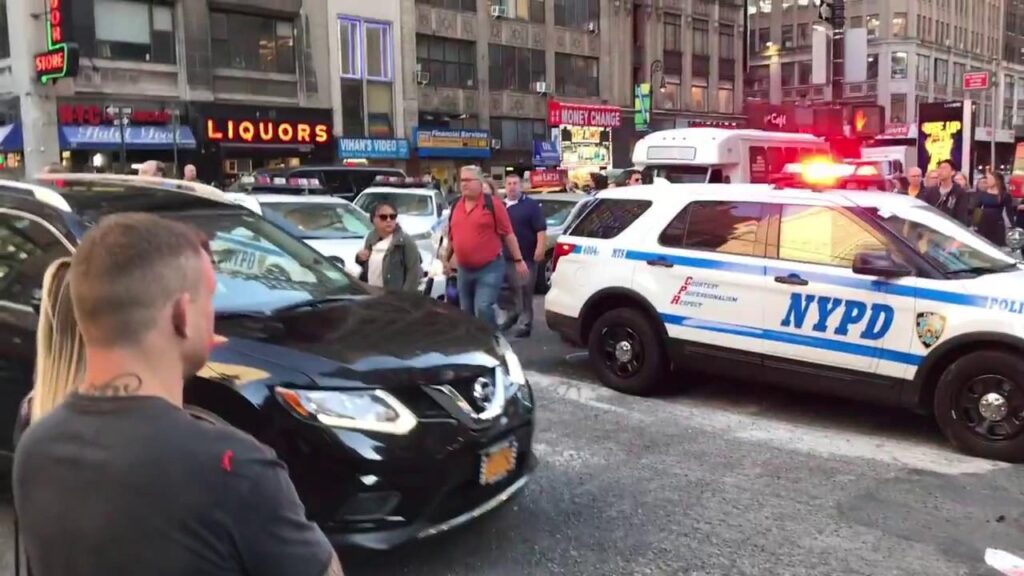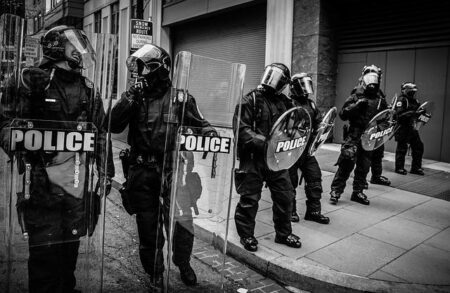From a Simple Moped Stop to Lengthy ICE Detention: Unpacking the Complexities of Immigration Enforcement in NYC
Routine Traffic Violation Leads to Prolonged Immigration Detention
A seemingly ordinary traffic stop in New York City for operating an unregistered moped unexpectedly transformed into an extended immigration detention ordeal lasting eight months. Instead of facing only a traffic citation, the individual was held in an Immigration and Customs Enforcement (ICE) facility due to a detainer issued by federal authorities. This incident has ignited debate over the intersection of local law enforcement and federal immigration enforcement, highlighting concerns about procedural fairness and the broader impact on immigrant communities.
Critical Issues Raised by the Intersection of Traffic Enforcement and Immigration Detention
What started as a minor infraction quickly escalated into a case that exposes systemic challenges within the enforcement framework. Advocates and legal experts emphasize several key issues:
- Due Process Deficiencies: Individuals can be detained for extended periods without formal charges or meaningful opportunities to contest immigration detainers in local courts.
- Community Relations at Risk: The merging of municipal policing with immigration enforcement erodes trust, particularly among immigrant populations who may fear routine interactions with law enforcement.
- Disproportionate Consequences: The harshness of immigration detention for minor traffic violations raises questions about proportionality and human rights.
Legal Ramifications and Personal Impact of Unregistered Vehicle Stops
In jurisdictions with stringent immigration enforcement policies, a traffic stop for an unregistered vehicle can trigger far-reaching legal consequences. Beyond fines or vehicle impoundment, such stops may lead to arrest and prolonged detention by immigration authorities, especially when an individual’s immigration status is flagged. This dynamic transforms a routine traffic violation into a gateway for federal immigration action.
The human cost of these detentions is profound, often including:
- Separation from Loved Ones: Detained individuals face isolation from family and community, intensifying emotional hardship.
- Legal Uncertainty: Indefinite detention periods and unclear legal processes create anxiety and instability.
- Economic Disruption: Interruptions to employment and education undermine financial security and future prospects.
| Outcome | Legal Consequence | Personal Effect |
|---|---|---|
| Vehicle Seizure | Confiscation until fines and fees are paid | Loss of mobility, increased hardship |
| Arrest and ICE Custody | Detention pending immigration proceedings | Family separation, psychological stress |
| Monetary Penalties | Fines and court-related expenses | Financial strain on individuals and households |
Insights into ICE Detention Practices Highlighted by the Moped Case
The case of the unregistered moped stop that escalated into an eight-month ICE detention sheds light on systemic issues within immigration lockup procedures. Minor infractions can lead to disproportionately long detentions, often without timely judicial review. This situation reveals gaps in communication between local police and federal immigration agencies, which can exacerbate the impact on detainees’ rights and well-being.
Key concerns include:
- Excessive Detention Periods: Lengthy confinement for low-level offenses without expedited hearings.
- Coordination Challenges: Insufficient information sharing between NYPD and ICE complicates case management and due process.
- Broader Social Effects: Extended detentions disrupt families and communities, with economic and emotional repercussions.
| Issue | Current Situation | Suggested Improvement |
|---|---|---|
| Initial Violation | Unregistered moped, minor offense | Implement alternative sanctions without detention |
| Detention Length | Eight months without prompt review | Enforce mandatory timely hearings |
| Interagency Communication | Limited case information exchange | Develop robust coordination protocols |
Strategies for Reforming Traffic Stops and Immigration Detention Policies
To avoid unnecessary escalation from minor traffic violations, law enforcement agencies should adopt comprehensive de-escalation and cultural competency training for officers. This approach can reduce the risk of routine stops leading to immigration detentions. Clear separation between traffic enforcement and immigration enforcement is crucial to maintaining community trust and protecting civil liberties.
Policymakers are encouraged to establish strict limits on data sharing between local police and federal immigration authorities, ensuring that minor infractions like unregistered mopeds do not automatically trigger immigration detention. Additionally, reforming the immigration detention system itself is vital. Alternatives such as community supervision programs and electronic monitoring have demonstrated effectiveness in reducing reliance on costly and overcrowded ICE facilities.
| Reform Focus | Details | Anticipated Benefits |
|---|---|---|
| Alternatives to Detention | Community-based monitoring and support | Lower expenses, improved social integration |
| Bond System Overhaul | Standardized, affordable bond requirements | Reduced arbitrary detention durations |
| Detention Oversight | Independent review boards for ICE facilities | Enhanced transparency and accountability |
| Data Privacy Protections | Restrict interagency data sharing | Prevents unwarranted detentions |
Conclusion: Reflecting on the Broader Implications of Minor Infractions
The incident involving an unregistered moped that resulted in an eight-month ICE detention highlights critical challenges at the crossroads of local policing and federal immigration enforcement. It underscores the urgent need for reforms that balance public safety with respect for due process and human dignity. As this case continues to draw attention, it serves as a powerful reminder of the complexities faced by immigrant communities and the importance of ensuring justice in even the most routine law enforcement encounters.













